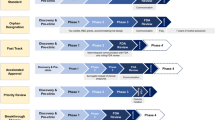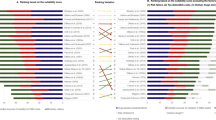Abstract
Well-designed and performed pivotal trials are critical in providing the efficacy and safety of a new drug for regulatory approval. The success of clinical drug development relies on the ability of clinical trial leaders to design and conduct international clinical studies. Physicians can do good clinical practice quality trials by following the protocols accurately but may not be able to design a complicated trial or lead an international clinical trial team. Clinical trial leaders are rarely born but have to be trained and learn through clinical research experience. Academic centers and drug industries have identified this need and proactively designed programs to nurture the clinical trial leaders of tomorrow via multidisciplinary programs. Using Taiwan as an example, the government has set up a Center of Excellence for Clinical Trials and Research (CECTR) in four medical centers. These national CECTRs complete a nationwide clinical trial network; strengthen clinical trial and clinical research infrastructure; set up national clinical trial and translational research centers; provide education and training for clinical researchers, doctors, nurses, and pharmacists; and improve quality, capacity, capability, and results of clinical trials. They are among the best in the world. Major pharmaceutical companies sponsored 200 international clinical trials for New Drug Applications in Taiwan in 2007. Our clinical investigators showed their clinical trial leadership by chairing many international clinical trials in Asia and worldwide. A Clinical Trial Academy for the training of clinical research leaders in Asia-Pacific is held regularly at the National CECTR at National Taiwan University Hospital. In collaboration with distinguished speakers from the industry, academia, and the local regulatory agency, promising young physicians from Asia-Pacific are trained in practical small-group workshops. Topics selected included how to perform international investigator meetings, how to write principal investigator (PI)-initiated clinical trial protocols, the concept of new drug development from the perspective of industry, experience in the institutional review board review of investigational new drug protocols, and so on. These investments in human resources have been well reflected in the number of clinical trials performed in Taiwan. Other than Australia, Taiwan has the highest number of PI-initiated clinical trials in Asia. We believe a good clinical research environment can attract young physicians to develop careers in clinical research and become clinical trial leaders of tomorrow.
Similar content being viewed by others
References
Campbell EG, Weissman JS, Moy E, Blumenthal D. Status of clinical research in academic health centers. JAMA. 2001;286:800–806.
International Conference on Harmonization. Good Clinical Practice guidelines (E6). 1996.
Karlberg JP. Development of sponsored clinical trials in Asia. Gin Trial Magnifier. 2008;1(5):77–100.
Sung NS, Crowley WF, Genel M, Salber P. Central challenges facing the national clinical research enterprise. JAMA. 2003;289:1278–1287.
Angell M. Industry-sponsored clinical research. JAMA. 2008;300:1069–1071.
Furler J, Cleland J, Mar CD, Hanratty B. Leaders, leadership and future primary care clinical research. BMC Fam Pract. 2008;9:52–57.
Pheley AM, Lois H, Strobal J. Interests in research electives among osteopathic medical students. J Am Osteopath Assoc. 2006;106:667–670.
Hiatt H, Sutton J. The nation’s changing needs for biomedical and behavioral scientists. Acad Med. 2000;75:778–779.
Solomon SS. Impact of medical student research in the development of physician-scientists. J Investing Med. 2003;51:149–156.
Brand RA, Hannafin JA. The environment of the successful clinician-scientist. Clin Orthoped. 2006;449:67–71.
Moskowitz J, Thompson J. Enhancing the clinical research pipeline: training approaches for a new century. Acad Med. 2001;76:307–315.
Wolf M. Clinical research career development: the individual perspective. Acad Med. 2002;77:1084–1088.
Data accessed from http://www.ClinicaITrials.gov on January 31, 2008.
Author information
Authors and Affiliations
Corresponding author
Rights and permissions
About this article
Cite this article
Chuang, FP., Chan, WK., Chen, MH. et al. Nurturing the Clinical Research Leaders of Tomorrow. Ther Innov Regul Sci 43, 365–369 (2009). https://doi.org/10.1177/009286150904300316
Received:
Accepted:
Published:
Issue Date:
DOI: https://doi.org/10.1177/009286150904300316




